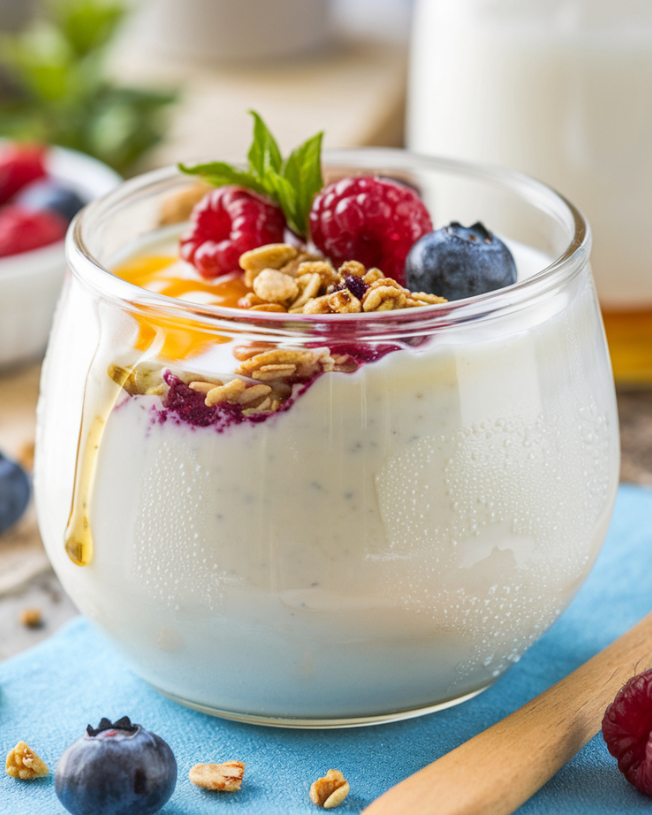
Raw Milk Yogurt
Raw milk yogurt is a creamy, probiotic-rich dairy product made from unpasteurized milk. It retains natural enzymes and nutrients, offering protein, calcium, and healthy fats, but may pose risks for some due to lack of pasteurization.
Ingredients
1 quart raw milk
2 tablespoons plain yogurt with live cultures (as a starter)
Instructions
Heat the Milk: Warm raw milk to 110°F (43°C) using a thermometer.
Add the Starter: Mix in the yogurt starter until fully combined.
Ferment: Pour the mixture into a clean jar, cover, and let it sit in a warm place for 6-12 hours.
Chill: Refrigerate the yogurt to thicken.
Serve: Enjoy with fresh berries, honey, or granola.
Video
Notes
Nutrition Facts for Raw Milk Yogurt (1 cup / 245g):
- Calories: ~150-160 kcal
-
Total Fat: ~8-10 g
- Saturated Fat: ~5-6 g
- Trans Fat: ~0 g
- Cholesterol: ~30-35 mg
- Sodium: ~100-120 mg
-
Total Carbohydrates: ~8-12 g
- Dietary Fiber: ~0 g
- Sugars: ~8-10 g (naturally occurring lactose)
- Protein: ~8-10 g
- Calcium: ~300-400 mg (30-40% DV)
- Vitamin D: ~0-2 mcg (varies by fortification)
- Potassium: ~300-400 mg
- Probiotics: Live active cultures (varies by brand)
Additional Notes:
- Raw milk yogurt is made from unpasteurized milk, so it retains more natural enzymes, beneficial bacteria, and nutrients compared to pasteurized yogurt.
- It is rich in probiotics, which support gut health.
- The fat content can vary depending on whether it’s made from whole milk, low-fat milk, or skim milk.
- Raw milk yogurt may not be suitable for everyone, especially pregnant women, young children, or individuals with compromised immune systems, due to the risk of harmful bacteria.